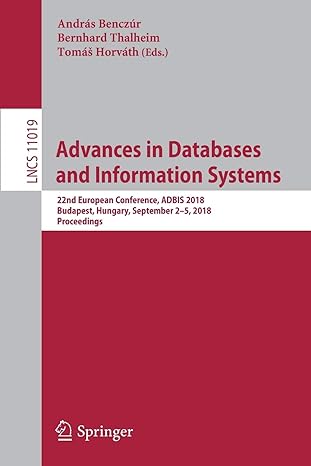Answered step by step
Verified Expert Solution
Question
1 Approved Answer
PLEASE HELP!! Complete the algorithm outlined by the psuedocode in class TreasureHuntGame. ...CODE... Treasurehunt.ipynb from __future__ import print_function import os, sys, time, datetime, json, random
PLEASE HELP!!
Complete the algorithm outlined by the psuedocode in class TreasureHuntGame.
...CODE...
Treasurehunt.ipynb
from __future__ import print_function import os, sys, time, datetime, json, random import numpy as np from keras.models import Sequential from keras.layers.core import Dense, Activation from keras.optimizers import SGD , Adam, RMSprop from keras.layers.advanced_activations import PReLU import matplotlib.pyplot as plt from TreasureMaze import TreasureMaze from GameExperience import GameExperience %matplotlib inline maze = np.array([ [ 1., 0., 1., 1., 1., 1., 1., 1.], [ 1., 0., 1., 1., 1., 0., 1., 1.], [ 1., 1., 1., 1., 0., 1., 0., 1.], [ 1., 1., 1., 0., 1., 1., 1., 1.], [ 1., 1., 0., 1., 1., 1., 1., 1.], [ 1., 1., 1., 0., 1., 0., 0., 0.], [ 1., 1., 1., 0., 1., 1., 1., 1.], [ 1., 1., 1., 1., 0., 1., 1., 1.] ]) def show(qmaze): plt.grid('on') nrows, ncols = qmaze.maze.shape ax = plt.gca() ax.set_xticks(np.arange(0.5, nrows, 1)) ax.set_yticks(np.arange(0.5, ncols, 1)) ax.set_xticklabels([]) ax.set_yticklabels([]) canvas = np.copy(qmaze.maze) for row,col in qmaze.visited: canvas[row,col] = 0.6 pirate_row, pirate_col, _ = qmaze.state canvas[pirate_row, pirate_col] = 0.3 # pirate cell canvas[nrows-1, ncols-1] = 0.9 # treasure cell img = plt.imshow(canvas, interpolation='none', cmap='gray') return img LEFT = 0 UP = 1 RIGHT = 2 DOWN = 3 # Exploration factor epsilon = 0.1 # Actions dictionary actions_dict = { LEFT: 'left', UP: 'up', RIGHT: 'right', DOWN: 'down', } num_actions = len(actions_dict) qmaze = TreasureMaze(maze) canvas, reward, game_over = qmaze.act(DOWN) print("reward=", reward) print(game_over) show(qmaze) def play_game(model, qmaze, pirate_cell): qmaze.reset(pirate_cell) envstate = qmaze.observe() while True: prev_envstate = envstate # get next action q = model.predict(prev_envstate) action = np.argmax(q[0]) # apply action, get rewards and new state envstate, reward, game_status = qmaze.act(action) if game_status == 'win': return True elif game_status == 'lose': return False def completion_check(model, qmaze): for cell in qmaze.free_cells: if not qmaze.valid_actions(cell): return False if not play_game(model, qmaze, cell): return False return True def build_model(maze): model = Sequential() model.add(Dense(maze.size, input_shape=(maze.size,))) model.add(PReLU()) model.add(Dense(maze.size)) model.add(PReLU()) model.add(Dense(num_actions)) model.compile(optimizer='adam', loss='mse') return model def qtrain(model, maze, **opt): # exploration factor global epsilon # number of epochs n_epoch = opt.get('n_epoch', 15000) # maximum memory to store episodes max_memory = opt.get('max_memory', 1000) # maximum data size for training data_size = opt.get('data_size', 50) # start time start_time = datetime.datetime.now() # Construct environment/game from numpy array: maze (see above) qmaze = TreasureMaze(maze) # Initialize experience replay object experience = GameExperience(model, max_memory=max_memory) win_history = [] # history of win/lose game hsize = qmaze.maze.size//2 # history window size win_rate = 0.0 #solution starts here for i in range(n_epoch): print("For loop started...") Agent_cell = random.choice(qmaze.free_cells) qmaze.reset(Agent_cell) envstate = qmaze.observe() game_status = 'not_over' while game_status=='not_over': print("While loop started...") prev_envstate = envstate q = model.predict(prev_envstate) action = random.choice(actions_dict) envstate, reward, game_status = qmaze.act(action) actionInt=list(actions_dict.keys())[list(actions_dict.values()).index(action)] episode = [prev_envstate, actionInt, reward, envstate, game_status] experience.remember(episode) inputs,targets = experience.get_data() model.fit(inputs, targets) #win_rate = model.evaluate(inputs, targets) #print(model.evaluate(inputs, targets)) print(game_status) print("While loop ended") #print("While ended. executing rest of Fr loop...") if win_rate > 0.9 and completion_check(model, qmaze): epoch = i print(i) #print("For loop ended...") # pseudocode: # For each epoch: # Agent_cell = randomly select a free cell # Reset the maze with agent set to above position # Hint: Review the reset method in the TreasureMaze.py class. # envstate = Environment.current_state # Hint: Review the observe method in the TreasureMaze.py class. # While state is not game over: # previous_envstate = envstate # Action = randomly choose action (left, right, up, down) either by exploration or by exploitation # envstate, reward, game_status = qmaze.act(action) # Hint: Review the act method in the TreasureMaze.py class. # episode = [previous_envstate, action, reward, envstate, game_status] # Store episode in Experience replay object # Hint: Review the remember method in the GameExperience.py class. # Train neural network model and evaluate loss # Hint: Call GameExperience.get_data to retrieve training data (input and target) and pass to model.fit method # to train the model. You can call model.evaluate to determine loss. # If the win rate is above the threshold and your model passes the completion check, that would be your epoch. #Print the epoch, loss, episodes, win count, and win rate for each epoch dt = datetime.datetime.now() - start_time t = format_time(dt.total_seconds()) template = "Epoch: {:03d}/{:d} | Loss: {:.4f} | Episodes: {:d} | Win count: {:d} | Win rate: {:.3f} | time: {}" print(template.format(epoch, n_epoch-1, loss, n_episodes, sum(win_history), win_rate, t)) # We simply check if training has exhausted all free cells and if in all # cases the agent won. if win_rate > 0.9 : epsilon = 0.05 if sum(win_history[-hsize:]) == hsize and completion_check(model, qmaze): print("Reached 100%% win rate at epoch: %d" % (epoch,)) break # Determine the total time for training dt = datetime.datetime.now() - start_time seconds = dt.total_seconds() t = format_time(seconds) print("n_epoch: %d, max_mem: %d, data: %d, time: %s" % (epoch, max_memory, data_size, t)) return seconds # This is a small utility for printing readable time strings: def format_time(seconds): if seconds < 400: s = float(seconds) return "%.1f seconds" % (s,) elif seconds < 4000: m = seconds / 60.0 return "%.2f minutes" % (m,) else: h = seconds / 3600.0 return "%.2f hours" % (h,) qmaze = TreasureMaze(maze) show(qmaze) model = build_model(maze) #qtrain(model, maze, epochs=2, max_memory=8*maze.size, data_size=32) qtrain(model, maze, n_epoch=2, max_memory=8*maze.size, data_size=32) #qtrain(model, maze, 2, 8*maze.size, 32) print(completion_check(model, qmaze)) show(qmaze) pirate_start = (0, 0) play_game(model, qmaze, pirate_start) show(qmaze)
Step by Step Solution
There are 3 Steps involved in it
Step: 1

Get Instant Access to Expert-Tailored Solutions
See step-by-step solutions with expert insights and AI powered tools for academic success
Step: 2

Step: 3

Ace Your Homework with AI
Get the answers you need in no time with our AI-driven, step-by-step assistance
Get Started


